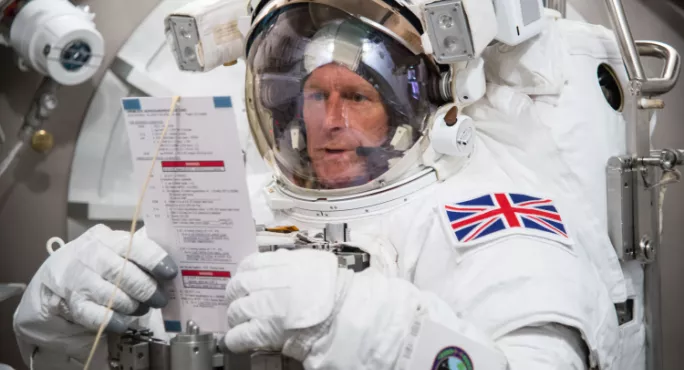On Tuesday last week science came to life for many thousands of schoolchildren as they watched British astronaut Tim Peake blast off to spend six months on board the International Space Station (ISS) carrying out science experiments.
A second purpose of his mission is to get young people more excited about space travel - and the launch certainly did that.
Whenever I go abroad, I am reminded of how good BBC television is. The launch of the Soyuz space mission was superbly televised. Live shots from Kazakhstan were matched not by the self-indulgent studio commentary that accompanies so many televised events, but by an informative discussion between three people who knew what they were talking about and were all excellent communicators - Professor Brian Cox and Dara O Briain are well known for their communication skills and deep knowledge of science.
Chris Hadfield was an inspired choice to co-present, having flown two space shuttle missions and served as commander of the ISS. Hadfield must have been particularly delighted that the programme went out from the Science Museum in the presence of 2,000 schoolchildren, since his own interest in space had been inspired as a child in Ontario when he watched the Apollo 11 moon landing on television on 20 July 1969 - one of the world events for which, like so many others, I remember where I was when it happened.
The space launch was gripping television, with excellent explanations of what was happening. Like the children in the Science Museum and the thousands of children watching the launch in their schools, I learnt a lot from the programme. Science has moved forward at an increasingly rapid pace over the past 50 years, but the engineering of the Soyuz space capsule that blasted the astronauts into space is fundamentally the same as that which took Yuri Gagarin up in the first manned space mission that orbited the Earth in 1961.
During his six months in space, some schools will get the chance to connect with Peake and ask him questions (for more information on the TES Cosmic Classroom, click here) and there are many other ways in which pupils in the UK can share in the knowledge and excitement of his mission. To make sure every student in the country gets a chance to be part of his mission, Peake sent a letter to all schools in the UK in March outlining the opportunities available.
He said: “I feel immensely privileged to be going into space and to be able to share my experience with everyone in the UK. I hope students all over the country will get involved in this incredible mission and be inspired to follow their own dreams.”
There are many possibilities for schools to do science and technology inspired by the space mission, which is a great opportunity to bring the excitement of learning into the classroom.
So, as the school term has now ended and teachers and school leaders reflect on boxes ticked, inspections survived and exams prepared for, Peake and the BBC have reminded us about the joy and excitement of learning. When 1 January comes, let us resolve to bring more of that into our schools in 2016. After all, one of your pupils might become the first person to go to Mars.
In the meantime, have a happy Christmas and a well-deserved holiday.
John Dunford is chair of Whole Education, a former secondary head, general secretary of the Association of School and College Leaders and national pupil premium champion.
Want to keep up with the latest education news and opinion? Follow TES on Twitter and like TES on Facebook




